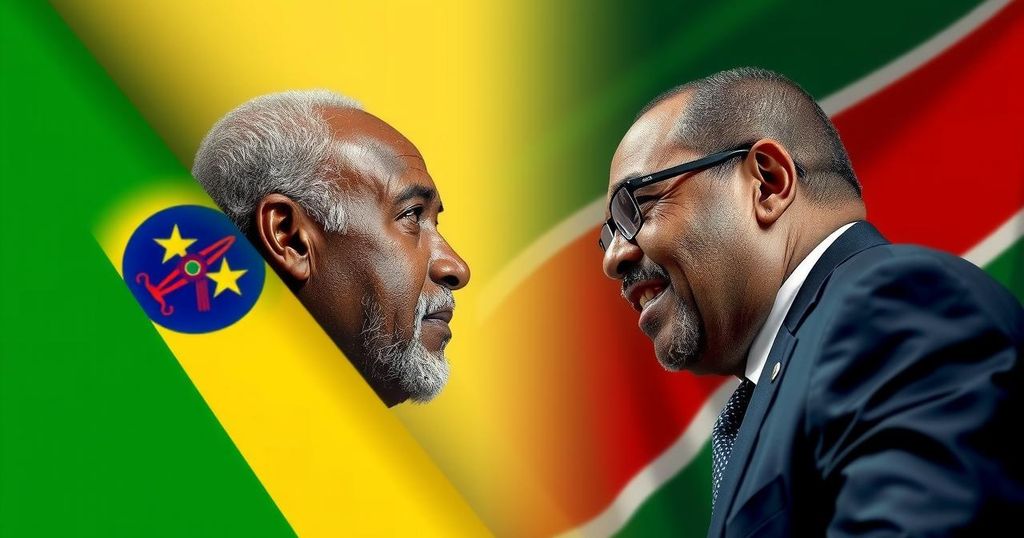Zelensky Advocates for Inclusive NATO Membership Amid Ongoing Ukraine Conflict

Ukrainian President Volodymyr Zelensky emphasized that NATO membership must encompass all territories of Ukraine under international law. He articulated that recognition of occupied areas as Russian territory is legally untenable for Ukraine. His remarks highlight urgent NATO assistance and underline the importance of swift membership to facilitate peace and diplomatic recovery of lost regions.
KYIV: President Volodymyr Zelensky stated that an invitation for NATO membership specifically for territories under Ukraine’s control could put an end to the current intense phase of conflict in the country. However, this offer must include all recognized areas of Ukraine, not just those free from occupation. Zelensky emphasized that legally, Ukraine cannot acknowledge the territories occupied by Russia as part of its adversary’s domain. He voiced the urgency for NATO to extend membership to Ukrainian-held areas in order to facilitate future diplomatic recovery of all Ukrainian lands.
Zelensky’s remarks signal a strategic approach toward Ukraine’s NATO accession amidst ongoing territorial challenges. The NATO summit in Washington earlier this year identified an ‘irreversible’ commitment to Ukraine, yet the lack of clear borders remains a point of contention. Our inability to extend an invitation solely to part of a nation implies a de facto recognition of Ukraine’s lost territories as belonging to Russia, which runs counter to Ukrainian constitutional law.
The conflict has intensified since 2022, with Russia continuously expanding its territorial control, particularly in eastern and southern Ukraine. In light of this, Zelensky insisted on the need for swift NATO inclusion for territories securely under Ukrainian governance as a precursor to reclaiming other parts diplomatically. This strategic direction aligns with his so-called ‘victory plan’ which seeks to enhance Ukraine’s negotiating position vis-à-vis Moscow.
NATO’s new Secretary General has articulated the need for increased support for Ukraine, indicating forthcoming discussions on military assistance and strategies for peace during the upcoming foreign ministers’ meeting. However, any formal entrance of Ukraine into NATO may encounter extended deliberation and necessitate unanimous approval from all member states.
Complicating matters further is the uncertainty surrounding President-elect Donald Trump’s foreign policy stance, particularly regarding Ukraine. As he prepares to assume office, the implications of his decisions on US relations with Ukraine are under scrutiny, particularly as it pertains to negotiating peace or providing military aid to the besieged nation. Amidst ongoing battles, President Zelensky announced vital shifts in military leadership aimed at enhancing operational effectiveness against the advancing Russian forces.
The ongoing conflict in Ukraine, which has intensified since Russia’s invasion in 2022, has resulted in significant territorial disputes. As Ukraine seeks to solidify its international alliances, particularly with NATO, the country’s leadership is faced with complex challenges regarding the recognition of its borders and territorial integrity. The principle that any NATO membership must represent the entirety of a nation’s territory poses significant legal and diplomatic hurdles that Ukraine must navigate as it strives to reclaim occupied regions.
In summary, President Zelensky’s assertion highlights the necessity for NATO to recognize all of Ukraine’s territories as part of its membership discussions, thereby fostering a potential resolution to the ongoing conflict. The emphasis on swift NATO inclusion for Ukrainian-held areas underlines the urgency of addressing the current stalemate in military operations against Russian advances. As both Ukraine and NATO consider their next steps, the political landscape surrounding leadership changes and foreign policy will be crucial in determining future engagements and peace negotiations.
Original Source: www.arabnews.com






